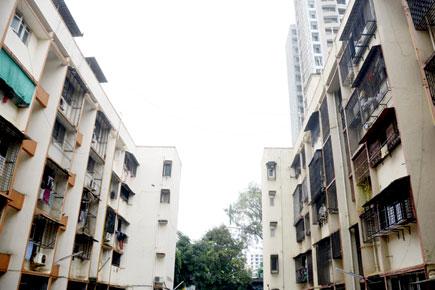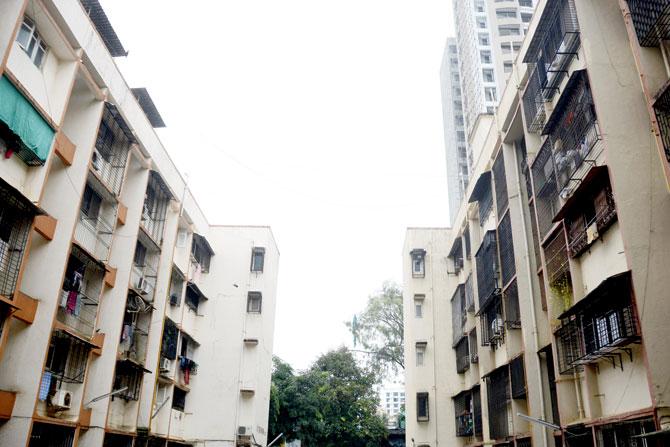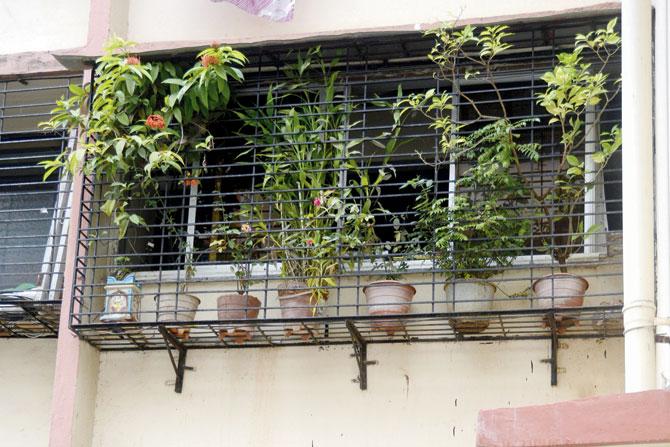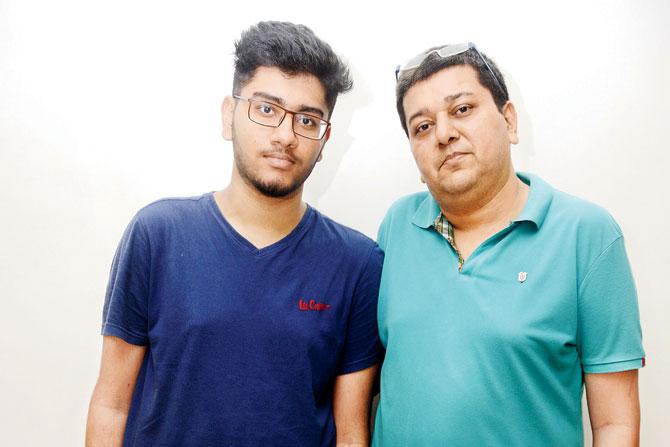Yogi Nagar complex in Borivli West is a monster-sized challenge the BMC is struggling with. Housing more than 50-odd buildings, it has the highest number of dengue breeding spots


The Yogi Nagar complex in Borivli. Pic/Sneha Kharabe
As most headaches go, this is a humungous one. Yogi Nagar complex in Borivli West is a monster-sized challenge the BMC is struggling with. Housing more than 50-odd buildings, it has the highest number of dengue breeding spots anywhere in the city – 34 at last count (June to September). >>P05 That’s higher than what’s typically found in any Mumbai slum, officials from the Brihanmumbai Municipal Corporation (BMC) have said. While one resident, Rekha Lodha, died of dengue two weeks ago, 16 people have been detected with suspected dengue. After sending innumerable notices and taking three societies here to court, the exasperated civic body has declared the complex a ‘high-risk zone’.
The BMC last inspected the area on September 15, when 42-year-old Lodha from Yogi-Saraswati Cooperative Housing Society, died of dengue. They found a breeding spot in the water collected under flowerpots on the first floor.
14 notices sent
The BMC has already issued 14 notices since June to the various societies in the complex under section 381-B (prohibition of mosquito breeding in collection of water on any land), seeking an explanation. Under section 382 of Mumbai Municipal Corporation (MMC) act, fines of Rs5,000 to Rs10,000 will now be collected from the residents for not keeping the premises clean.

Water collected under flower pots is among the biggest breeding spots for dengue mosquitoes, says BMC
'Huge challenge’
A senior official from the insecticide department said, "The biggest challenge that the BMC faces is making societies aware of breeding spots. People expect the BMC to fumigate and solve the problem. They forget that the breeding spots are inside their own homes."
During their inspection, the officials found that flower pots, petri dishes, empty tins and tarpaulins were high risk areas. “Flat owners are responsible for ensuring no water stagnates in here,” he said.
SocietySpeak
H N Parekh, secretary of Yogi Saraswati building, said, “We had sent complaints about the mosquito menace to the BMC on December 15 last year. But, civic officials have done little to address our issues. We have ensured that our society compounds and surroundings are kept clean. But, if mosquitoes are breeding in someone’s house, what are we to do? Mosquitoes can come from nearby areas, too, and this, the BMC has to look into.”
BMC says
Civic officials have organised awareness drives and distributed handbills inside the complex. When asked about the civic body’s action to prevent a dengue outbreak in the complex, Insecticide Officer Rajan Naringrekar said, “On August 9, we organised an awareness programme on tackling dengue at Yogi Nagar Welfare Association Hall. We explained the dos and don’ts. Handbills were distributed to every flat. Last July, a similar drive was conducted. But, we have seen no improvement. In fact, the number of breeding spots has gone up from 21 to 34. We had to finally take stringent action.”
Civic officials said that dengue breeding spots across the city have been found mostly in high-rises. Of the 8,946 breeding spots found till August this year, 80% were in high-rises, they said.
Case Study

Rekha Lodha
'Why checks only after death?'
On September 12, Rekha Lodha (42) succumbed to dengue related complications within a week of being detected. She was admitted to Kokilaben Hospital on September 6. Rekha, who is survived by her husband Jeetendra, a son, Raunak, who is studying engineering, and a daughter in Std 9, lived in the A wing of Yogi-Saraswati Co-operative Society.

Rekha's husband Jeetendra Lodha with his son Raunak
Jeetendra, a diamond broker, is furious with the civic body for not doing enough to curb the outbreak. “It was only after I lost my wife that the civic body fumigated our building. Why do authorities wake up after there’s a death? I have lost a pillar of the family. It will be a challenge to look after my children without Rekha. I blame the civic officials. Their checks are an eyewash. Issuing notices to the buildings is just a superficial formality.”
He added that there is an open ground to the west of the complex where water accumulates, but he hasn’t seen fumigation done there. “BMC’s claim that the dengue breeding spot in the flower pot is responsible for Rekha’s death is weak.
 Subscribe today by clicking the link and stay updated with the latest news!" Click here!
Subscribe today by clicking the link and stay updated with the latest news!" Click here!









